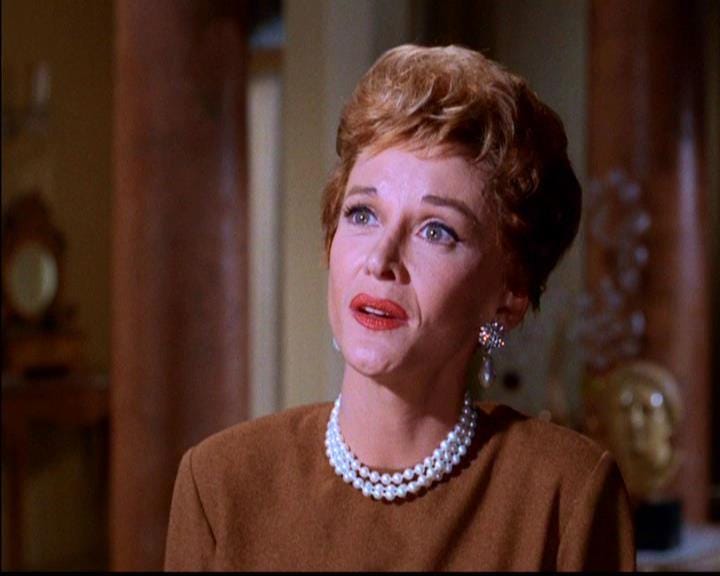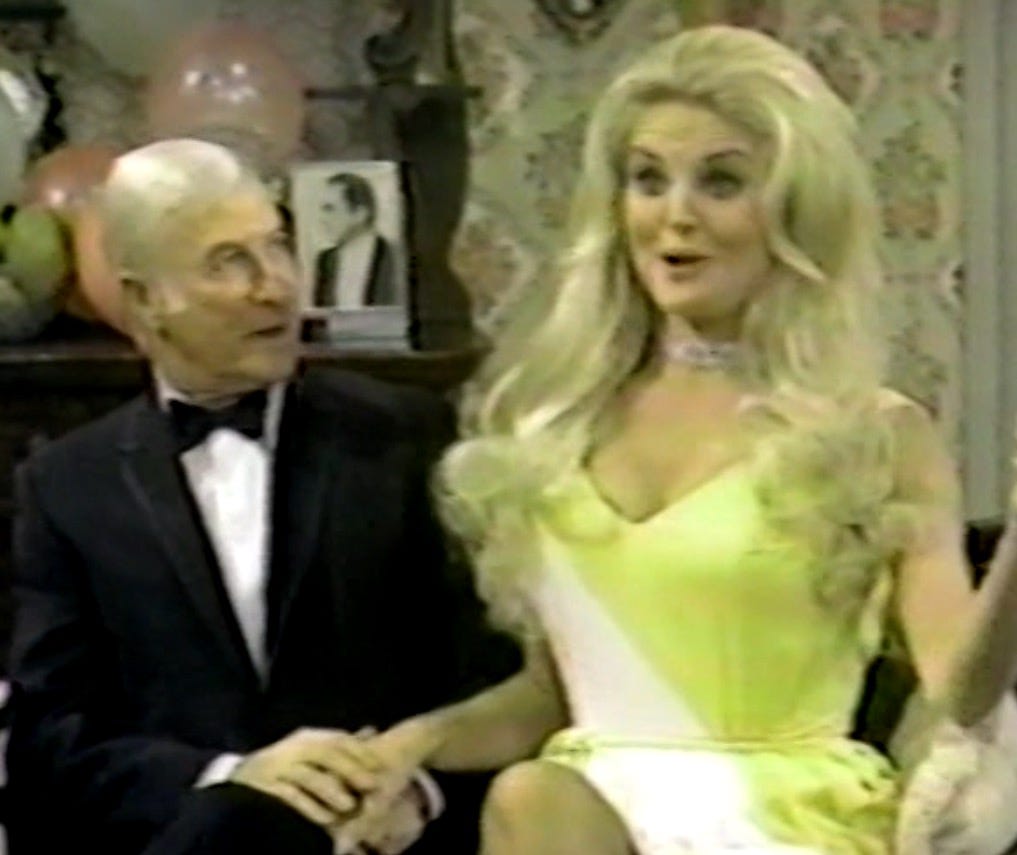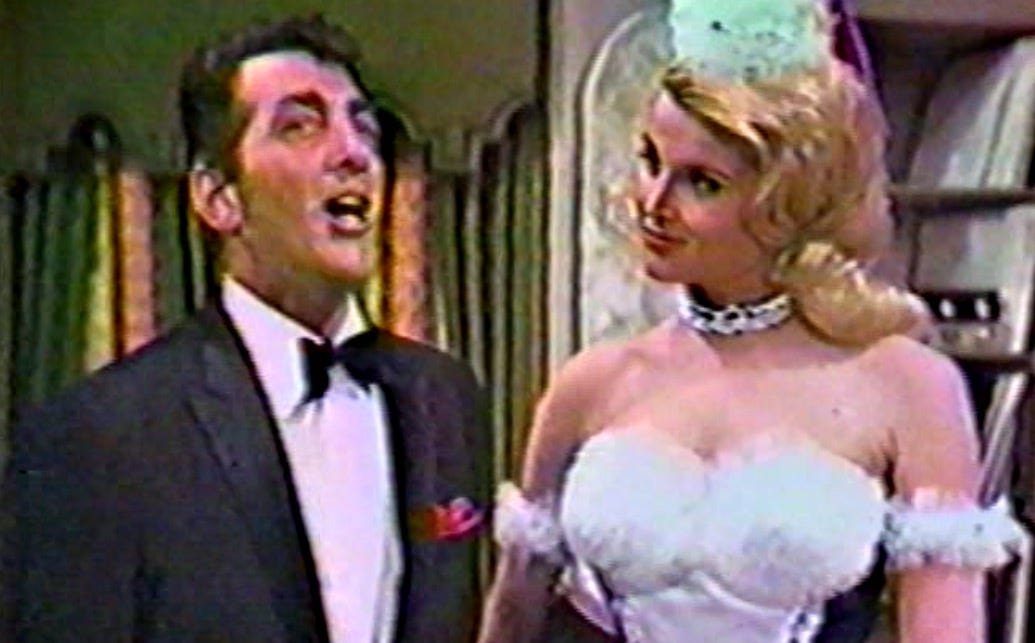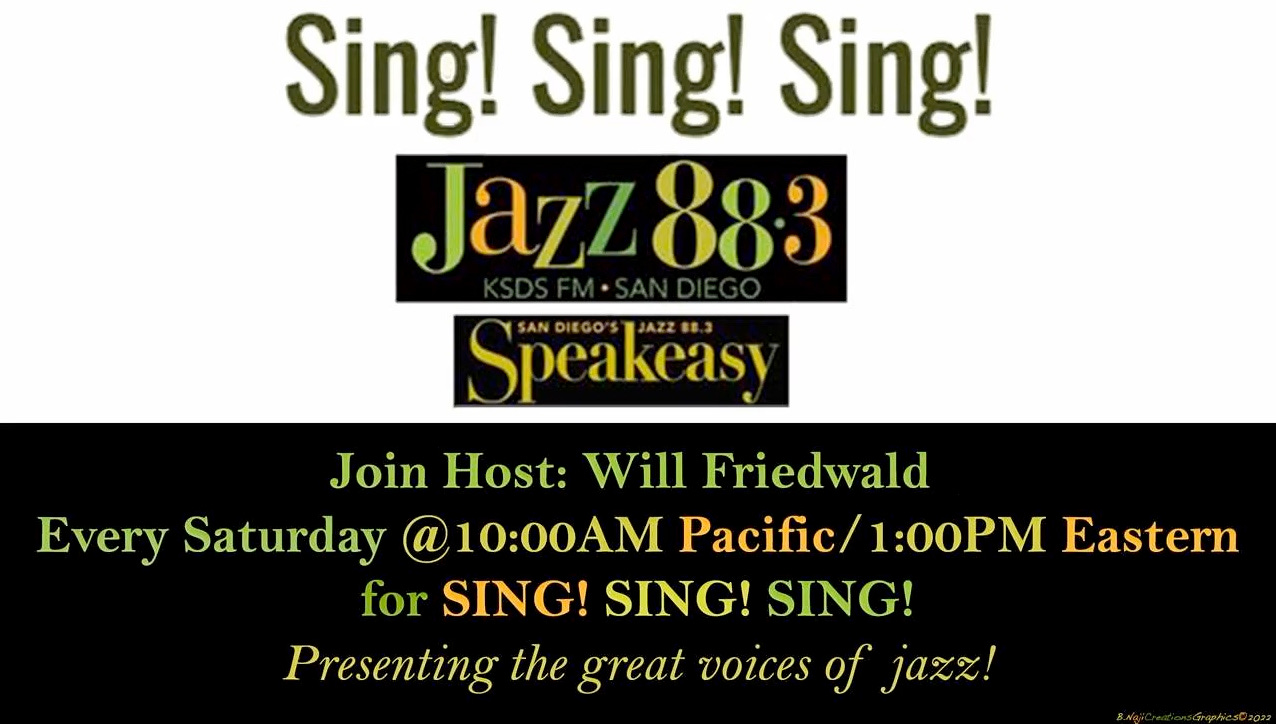Happy New Year from Dean & Frank
THE DEAN MARTIN SHOW (DECEMBER 31, 1970) with special guest FRANK SINATRA ... not to mention Ruth Buzzi!
(Below, a uT compilation of all the scenes in this episode with Sinatra.)
Longtime Friends of Friedwald know well that I am obsessed with The Dean Martin Show. There are those out there who believe that Dean Martin’s finest period was the years of his breakthrough as half of the immortal team of Dean Martin and Jerry Lewis, roughly 1946-1956. Still others will insist that his greatest years were the era of the Rat Pack, roughly 1960 to 1965. But they are wrong.
The high point of Martin’s career was The Dean Martin Show, particularly in its first six seasons, from September 1965 to April 1971. (Don’t get me wrong, I know there were great shows in the final three seasons, 1971 to 1974, but I have seen relatively few of the later episodes.) These were the moments when Martin showed everything he could do: singing solos - one at the opening, another on the couch halfway through - sketch comedy, playing a straight man to comics as different as Jonathan Winters and Bob Newhart, a rather amazing series of semi-improvised duet medleys with a dazzling array of first-rate singers. The Dean Martin Show had everything.
One thing the Dean show wasn’t was particularly Rat Pack-y. Sinatra was on less than half a dozen times, including the first episode, and special episodes for Christmas 1967 and New Year’s 1970; Sammy Davis, Jr. seems to have been a guest on the show on just one occasion (January 15, 1970). Instead, Dean’s guests came from across the total spectrum of pop and even country music - the show was particularly rich in great female singers: Ella Fitzgerald, Lena Horne, Peggy Lee, Lainie Kazan, Polly Bergen, Caterina Valenti, as well as Ethel Merman and Kate Smith, all of whom seemed to have a crush on the host.
Thankfully, the 1967 Dean Martin Christmas episode - featuring Martin and Sinatra and all their kinder, as well as two-second cameo by Sammy D - has been restored and recently shown in its entirety on PBS. Now I wish they would do the same for the 1970 New Year’s Show, also co-starring Sinatra. In the meantime, we do have a collector’s copy of the whole show - probably taped off the air when it was rerun circa 1980 - in low resolution. Even better, we do have about four or five clips from this episode in full DVD-quality from the series of Best of the Dean Martin Show discs that came out roughly ten or fifteen years ago, curated by producer-director Greg Garrison himself and released on DVD by Guthy-Renker. Granted, not all the show is restoration-worthy - much of the comedy depends on how much you like Ruth Buzzi - but the good moments are truly great.
What follows are highlights from the New Year’s show - the best sequences in the best quality that I can find.
THE OPENING MEDLEY:
“Love Is Just Around the Corner” (Leo Robin & Ralph Rainger)
”My Kind of Girl” (Leslie Bricusse)
”But Beautiful” (Johnny Burke & Jimmy Van Heusen)
”L-O-V-E” (Bert Kaempfert & Milt Gabler)
”I Get a Kick Out of You” (Cole Porter)
”Goody Goody” (Johnny Mercer & Matty Malneck)
”Guys and Dolls” (Frank Loesser)
Previous Dean-Frank shows build to the big Dean-Frank medley near the conclusion, but this episode just opens brilliantly with one. And while this is a medley, it’s hardly as choppy as most of the medleys on the golden age of the television variety show. The two principals don’t just sing a line or two and move on, as we expect; rather, together they do an entire chorus of eight different songs - explaining why the medley is a total of eight minutes and 30 seconds. In fact, on “I Get a Kick Out of You,” Sinatra even sings the verse, or at least attempts to, even while Martin succeeds in making him crack up and lose focus. Their energy and exuberance is remarkable; the two are both earnest and playful at the same time; Sinatra forces out a sibilant lisp at several points, as in the ending of “My Kind of Girl.” This illustrates how the two sing beautifully even while refusing to take either the songs or the material too seriously. The two constantly prod and provoke each other. My favorite moment might be early in “Love Is Just Around The Corner” wherein Sinatra underscores Martin’s stylistic debt to the great Al Jolson by exclaiming “Sonny Boy.”
The Dean show was a safe haven for female comics as well as singers. Barbara Heller was a semi-regular for a while - and she appears later in this episode - and Phyllis Diller and Minnie Pearl also made frequent appearances. Many of Martin’s funniest moments were playing against some of these great gals. I’m particularly fond of the segments with Dean and Minnie Pearl, from the episode of February 22, 1968):
Dean: “Who’s giving the bride away?”
Minnie: “So far everybody’s kept their mouth shut!”
Answering the musical question, “What is this thing called Dingaling?” The Dingaling Sisters segment doesn’t hold up particularly well in terms of gender equality - why would they take these intelligent, beautiful, talented girls and christen them with the unflattering moniker “Dingalings?” Still, it was a chance for some of the more prodigiously talented of the Gold Diggers to be featured with more screen time, and there are some excellent segments, especially with everyone’s favorite Gold Digger/ Dingaling, Michelle Dellafave - she’s the more than statuesque blonde dancing mostly behind Martin in the upper left portion of the screen. To their credit, this is the girls’ segment, and Sinatra and Martin are delighted to let them stay in the spotlight - they never try to pull focus. For once, the two veteran headliners are supporting the chorus girls, rather than the other way around.
(Here are two edits of the “Music Room” sequence for this show - the first is more complete, and includes the Joe E. Lewis-style song mini-parodies, but the second is in better quality, more recently posted from the “Best Of” DVD series.) The music room bit - from the top of the piano parodies to the couch ballad - is always my favorite part of every episode.
Again without question, the greatest moments on The Dean Martin Show were the music room sequences with longtime accompanist Ken Lane; they show Dean both at his silliest, doing Joe E. Lewis-style brief parodies of songs while perched on the piano, and at his compelling best, sitting on the couch and delivering a ballad with as much earnestness and honest emotion as was possible for him to muster up - which was considerable. At some point I’ll do a whole SubStack on Dean’s “couch” songs. Over the years, he sang “Young at Heart” (Johnny Richards - Carolyn Leigh) more than once from the couch, and here his rendition seems much inspired by Jimmy Durante’s cameo as a closet guest.
The “Computer Dating Sketch”: Even more than the Dingalings, it isn’t particularly enlightened, but I did note that some enterprising individual posted this bit on youTube as a “great moment in queer TV history.” Says Sinatra: “We’ve been using Liberace’s computer!”
Sinatra’s solo: “Something.” It’s particularly unfortunate that we don’t have a very good copy of Sinatra’s only solo number, George Harrison’s “Something” which he recorded two months earlier in October. To diehard Frank fans, this early arrangement, by veteran Hollywood maestro Lennie Hayton (a very dear friend of Sinatra, Martin, Crosby and practically everyone else), doesn’t compare to the later Trilogy arrangement by Nelson Riddle. Still, here it sounds darn good - better than I remember on the Reprise single. Sinatra coughs and clears his throat as he approaches the bridge, which is proof that all the singing was “live” (not lip-synched) and that they almost never did a second take of anything.
“Ken Lane - Kay Medford Scene.” These comedy sketches gradually grew out of the music room sequences with Ken Lane. (Much the same way The Honeymooners grew out of The Jackie Gleason Show and Mama’s Family emerged from The Carol Burnett Show.) Key Medford, best known to showbiz history as the original Mrs. Brice in Funny Girl, made a memorable series of appearances on the show as Ken Lane’s doting mother - who perpetually addresses Dean as “Marvin.” Below, the wonderful Kay Medford (1919-1980), followed by Barbara Heller
Here they’re joined by Barbara Heller and Ruth Buzzi as a pair of wacky spinsters. (You’ll remember Barbara Heller singing “By Strauss” on Sinatra’s 1960 Timex Show, Here’s To The Ladies.) But who is the amazonian mega (not MAGA) blonde who gets paired with Ken Lane? (She’s also in the first bit on the first episode in 1965 as Dean’s “dresser.” Two screenshots below - from January 31, 1970 with Ken Lane, and September 16, 1965, with Dean. )
Martin, Sinatra, Lane, and Buzzi all take part in a sketch parodying old-time radio big band remote broadcasts. I’ll let you judge this bit for yourself - to me it seems kind of a waste of Sinatra’s time, especially since he was on the program so infrequently. The highlights are Dean’s impressions of Cary Grant and especially Clark Gable (which is seriously better than Sinatra’s throwaway impression of Jimmy Cagney) - as well as his musical homage to Pinky Tomlin. Don’t miss Ruth Buzzi channeling Miss Peggy Lee. Better still is watching Michelle Dellafave playing a pantomime trumpet. You go, girl!
ENDING MEDLEY:
“Now Is The Hour (Maori Farewell Song)” (Clement Scott, music; Maewa Kaihau, Dorothy Stewart, lyrics)
”You Make Me Feel So Young” (Josef Myrow & Mack Gordon)
”So Long, It’s Been Good To Know Ya” (Woody Guthrie)
”Auld Lang Syne” (Robbie Burns)
There are two different edits of the ending medley on YouTube - the first is longer and fuller, but in lesser quality.
Again Sinatra and Martin share space with the Gold Diggers; all are seated, and no one pulls focus; Sinatra seems content and even relieved to be part of an ensemble. This is another relatively rare moment of semi-serious singing by the host. It’s even more unusual to hear Sinatra’s voice on a song by Woody Guthrie - even bearing in mind that he did make a somewhat successful record of another Weavers classic, “Goodnight Irene” by Leadbelly. I find it a very touching, bittersweet moment, at once an ending and a new beginning, as New Year’s is supposed to be, 55 years ago even as it is now.
“And don’t forget the moral of tonight’s show, folks: put your troubles away till tomorrow, and with any luck, someone will break into your house and steal ‘em!”
Sing! Sing! Sing! : My tagline is, “Celebrating the great jazz - and jazz-adjacent - singers, as well as the composers, lyricists, arrangers, soloists, and sidemen, who help to make them great.”
A production of KSDS heard Saturdays at 10:00 AM Pacific; 1:00PM Eastern.
To listen to KSDS via the internet (current and recent shows are available for streaming.) click here.
The whole series is also listenable on Podbean.com; click here.
SING! SING! SING!
Best of 2024 Jazz Vocals
(SSS #128 2024-12-28)
download: <OR> play online:
Dylan Goes Eclectic! Bob Dylan Jazz & Pop Mixtape w ELIJAH WALD
(SSS #127 2024-12-21)
Download: <or> play online:
Sinatra! Frank Conversation with very special guest, MR. BILL BOGGS
(FS 2024 11 2024-12-16)
Download: <or> play online:
Sinatra! “The Man With The Golden Arm Revisited”
Guest-starring:
KURT ELLING, MELISSA ERRICO & ALLAN HARRIS
(SSS #126 2024-12-14)
download: <OR> play online
Sinatra! Highlights from the ABC TV Series, 1957-'58
(FS 2024 07 2024-12-10)
Download: <OR> play online:
Sinatra! Sings Cahn & Van Heusen
(SSS #125 2024-12-07)
download: <OR> play online:
Sinatra! Sings Burke & Van Heusen
(Day #2 of the 12 Days of Sinatra FS 2024 02 2024-12-03)
download: <OR> play online:
John Kander & Fred Ebb - The Jazz & Pop MixTape
(SSS #124 2024-11-30)
Download or play online
The Harry Warren & Johnny Mercer Songbook, Part 1 -
with Vanessa Racci & Robert Lamont
(SSS 123 2024-11-23 )
download: <or> play online
"Uncle Sam Blues - The Best of V-Discs"
(SSS #122 2024-11-16 )
Download <OR> Play Online
SLOUCHING TOWARDS BIRDLAND is a subStack newsletter by Will Friedwald. The best way to support my work is with a paid subscription, for which I am asking either $5 a month or $50 per year. Thank you for considering. (Thanks as always to Beth Naji & Arlen Schumer for special graphics.) Word up, peace out, go forth and sin no more! (And always remember: “A man is born, but he’s no good no how, without a song.”)
Note to friends: a lot of you respond to my SubStack posts here directly to me via eMail. It’s actually a lot more beneficial to me if you go to the SubStack web page and put your responses down as a “comment.” This helps me “drive traffic” and all that other social media stuff. If you look a tiny bit down from this text, you will see three buttons, one of which is “comment.” Just hit that one, hey. Thanks!
Slouching Towards Birdland (Will Friedwald's SubStack) is a reader-supported publication. To receive new posts and support my work, consider becoming a free or paid subscriber.
Slouching Towards Birdland (Will Friedwald's SubStack) is a reader-supported publication. To receive new posts and support my work, consider becoming a free or paid subscriber.








Relevant to Sinatra, not this post. Do you know if Frank ever pre-recorded songs for TV shows? Specifically did he pre-record some songs for his early TV specials, the ones shot on cavernous sound or movie stages? The sound on some songs sounds off to me, not realistic. No one has mentioned the specials, as far as I know. What do you know or think?
I suspect that by the end of 1970, Sinatra was already contemplating his “retirement,” making a this show even more poignant although perhaps only with 20-20 hindsight. I think he already had the hand surgery to correct the problems he experienced when holding a microphone. There was a phone interview with Sid Mark sometime in 1970 that even hinted at slowing down or perhaps taking a break. Think of Sinatra’s reported suggestion that promoted Paul Anka to write the lyrics for My Way, as a fitting (maybe) ending to a career. Yes it’s become a song of bombast and boasting, but for Sinatra; wasn’t it somewhat appropriate. Although with the retirement concert, his concept of programming pushed My Way towards the end of the concert but not the grand finale to his career, for that he turned to the chestnut Angel Eyes.